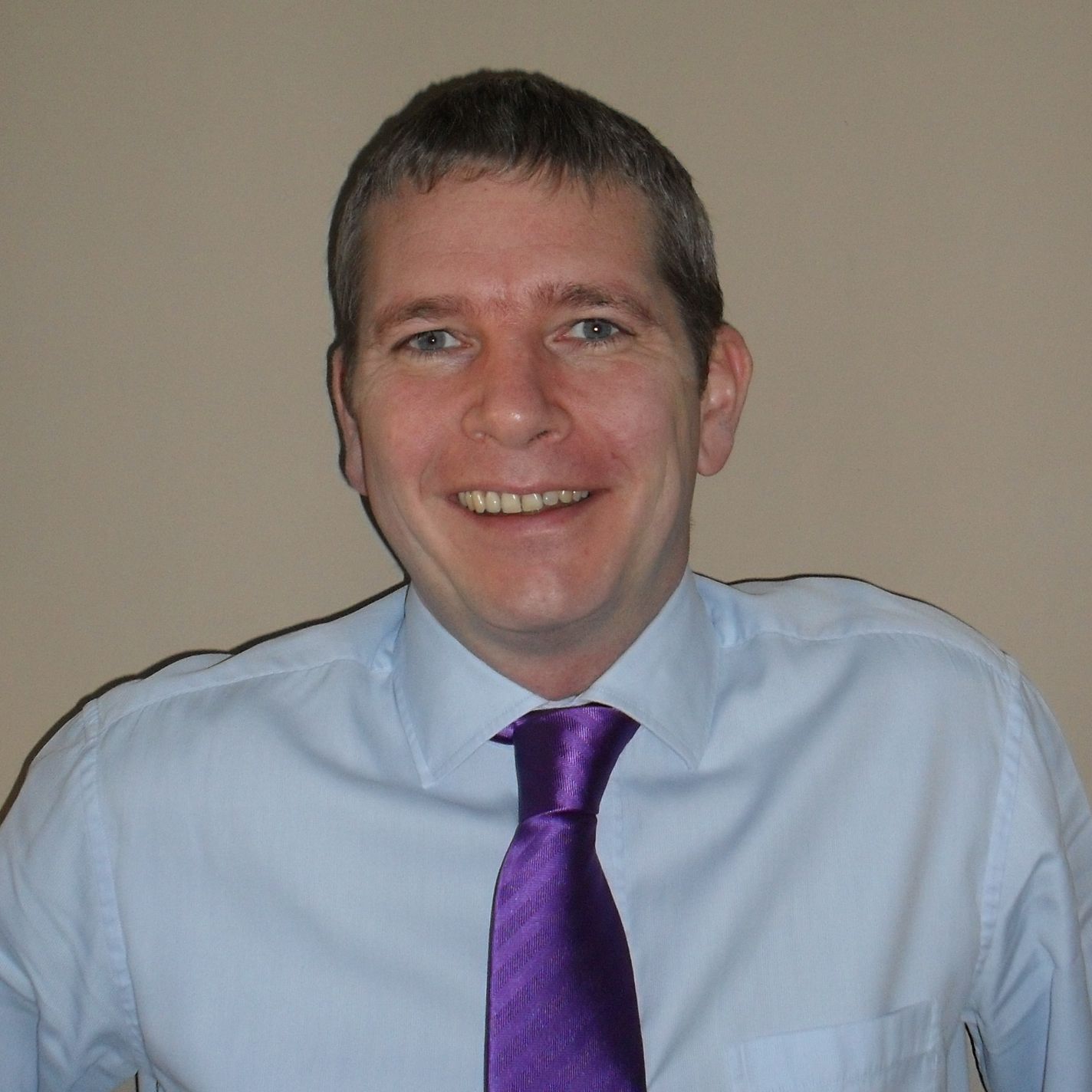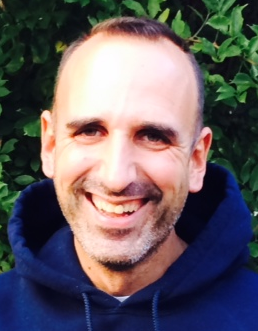


As health care professionals, most of us use a little black humour to help us through the tough, horrrific or emotional moments. And we sometimes feel a little guilty about that. So it's reassuring to know that those we care for can also find some humour in their darkest hours.
Given that Mark Pritchard and his wife Sarah had the metaphorical book thrown at them health-wise when Mark had a brain haemorrhage and Sarah developed breast cancer, you'd think that finding a funny side would be akin to finding a Sorbo ring on a pressure ulcer prevention policy, but they did.
A brilliant read!

In previous blogs, shared in PCNR, David has strongly advocated for meaningful patient engagement and his role as a patient Director. Here, he blogs about returing to work after a period of 'pationt-hood'.

The first article Joan wrote for us was about the 6Cs (https://pcnr.co.uk/articles/118/care-is-our-business). We had been in a Twitter discussion about the concept; I was 'fairly outraged' of North London, as I felt that this was fundamental to nursing and should not have to be so baldly stated in a document. Joan however, saw it in a completely different way, so I invited him to pen a piece outlining his view*.
Since then, he has contributed to every issue, and has tirelessly tweeted on our behalf. It's been such a pleasure working with him and seeing how he has progressed to being the Roaring Nurse whom we all love.
*I wasn't expecting him to channel his inner 'vonTrapp family' though!

As it's the last issue, I couldn't pass up the opportunity to share my thoughts once more.
With the upcoming General Election, the NHS is on everyone's agenda. And of course, so is the future of nursing...

Sustainability and Tranformation plans are being hailed as the saviour of the NHS. But are they a force for good, or just another cost-cutting exercise? Joan shares his views.

One can't help but notice that A & E departments are bursting. Everyone from the Government to bed managers are runing around trying to find a solution to the problem. But coul this lie in patient solutions? Here, David Gilbert shares his thoughts in his recent blog.
For more of David's thoughts and insights, please go to: https://futurepatientblog.com/about/

Discharge planning. Two words which strike terror into the hearts of us all. Here, Brian shares his thoughts on how it should be approached.

Patient leaders are an asset to healthcare. In this blog, David Gilbert shares his toughts on being a patient leader.
For more of David's thoughts and insights, please go to: https://futurepatientblog.com/about/

Does your organisation care for its carers? Not all do, as evidenced here by Brian.

As regular readers will know, Frank Booth has been informing and entertaining us with his words based on years of expereince as a nurse and a rather poorly patient! However, despite his robust 'you're not going to get me' attitude to his various ailments, and his acceptance that his was a road that wasn't going to end with a miracle cure, his recent experience rather slapped him in the face.
Read about it here....

Another Olympic and Paraolympic Games has ended. We have watched sports we didn't even know existed, and briefly flirted with the idea that running for the bus was adequate training for the 2020 games...
Here, Joan shares his thoughts on healthcare and how we need to embrace the Olympic ideals
In Issue 5 (https://pcnr.co.uk/articles/166/the-whistleblowers-tale), we highlighted the story of Elieen Chubb, one of the so-called Bupa 7 nurses who blew the whistle on poor care.
Since then, Eileen has been tirelessly compaigning for Edna's Law to be introduced. Here, she relates the campaign's progress.

Are the continence services you provide based on guidelines, guidance or best practice? Frank Booth explores semantics and how these affect practice

After returning from a holiday to his home country, Spain, where he sucessfully made the entire country aware of the great things he is achieving in the NHS, Joan shares his thoughts on the future of the NHS post-Brexit.

Brian's back! And of course, he has something to say. Here he considers what the closure of the DH Nursing, Midwifery and Allied Health Professionals Unit would mean for nursing, and urges you to sign the petition:
https://petition.parliament.uk/petitions/132672

It happens to us all eventually - forgetting what day it is, looking for your car keys and inexplicably finding them in the fridge, conversations with phrases such as 'you know, the thingy...' because you can't quite remember the word for the thingy you are talking about.
Of course, such lapses are not always an indicator of dementia - we all lead busy lives and often are just working on autopilot. But what are the causes of confusion in your patients?
In this article, Sue explains how a few simple steps helped her mother to overcome her confusion.

The Victorians knew how to do a good death. Mourning was almost an art form. Professional mourner was a legitimate career option, bodies were kept at home prior to the funeral, and Queen Victoria made black clothing and retreating to one's country pile de rigeur.
Over the last 150 years or so, society's attitude to death has changed. It's almost a taboo subject.
In this article, Frank Booth explains why we should all be talking about it.

The New Year bought with it some excellent news for our PCNR Editor, Deborah Glover.
She's way too modest to write about it herself so it's up to me your publisher, to do the decent thing. Now all I have to do is spread this far and wide through social media before she deletes it...

For patients, the communications they receive are practically and symbolically important. An appointment letter may be the first time they come into contact with the health service. You'd think therefore that this simple thing would be done corrrectly, every time...
In his latest blog, David Gilbert finds that this isn't the case....

In Issue 4, Brian Booth discussed professional boundaries.
In this follow-up article, he challenges you again...

Are you a fan of Call the Midwife? Sue Smith looks back on childbirth approaches practice in the 60s. And no, it wasn't all Patchouli and free love (although that may be why Sue was delivering some of the babies she delivered...)

Society's attitude to death today is far different to that of 100 years ago. Granted, it isn't so commonplace anymore - technology, drugs and gizmos keep us alive longer even than our allocated three score years and ten!
As healthcare professionals, we shoudl be used to discussing death, we see it every day. But we are also members of society, so perhaps our attitude has also changed and death is seen as a failure.
Sue Smith explores this fascinating subject

How easy is it, in this fast-paced, short-staffed world of nursing, to remember the names of your patients?
Brian Booth has a few thoughts...

Do leaders and managers ever feel vulnerable? Have you ever sat in a meeting and suddenly thought "Do I really know what I am talking about? Is this me? I don't know what the hell is going on? And if you have, do you tell anyone, or even admit it to yourself?
I his latest blog, David Gilbert shares his thoughts on the vulnerabilities of a patient director.

In an effort to force NHS organisations to save money, the Government imposed a cap on agency staff spend. But is this the answer to the problem? Joan-Pons Laplana doesn't think so.

Plus ça change, plus c'est la même chose...
If you stay in nursing long enough, you'll see many changes, and you'll see many things turn full circle. Here, Sue Smith shares her reflections on change.

While many patient groups and organisations exist, it is rare to hear an unbiased view of care from a service user.
We at PCNR are fortunate enough to have such a voice; David Gilbert, currently Patient Director at Sussex MSK Partnership and Director of InHealth Associates, is a former mental health service user with 25 years experience in patient/user and public engagement at local, national and international level.
Over future issues we will include David's blog, and in issue 8, an article from David explaining his role as Patient Director. Here, David outlines 'The Patient's Dozen', 12 issues important to patients and carers.

Are well all getting that little too self-centred? Getting cross when we have to pull over for an ambulance? Angry when 'a passenger is taken ill' on the train, causing a delay? Feeling that although I am a registered nurse, I can't stop to give assistance else I wil be sued...?
In this opinion piece, Brian Booth outlines his personal expereince and poses a question for the reader.

Well, it’s finally here. The Code (2015) became effective from 31st March. Many believe it was sorely needed. Others believe it is just more ‘gumpf’. Yet this version will have more impact upon registrants as revalidation depends on adhering to and demonstrating where you have applied its principles. In this opinion piece, Brian Booth and Deborah Glover share their thoughts about the new Code.

Ian Peate is a Professor. The route to becoming a Professor of anything is not easy; many degree-course Registered nurses do not attain such heights. But Ian began his career as a State Enrolled Nurse - you know, the course that apparently existed for the 'less academic', less motivated' people...
Read his story...

Millions of pounds are spent every year by women (and men!) who want to change some aspect of their appearance. Or they want to look like someone completely different (was M Jackson trying to become Diana Ross - the jury is still out..). Yet many who have facial disfigurements due to genetics, illness or injury are living full and active lives without feeling the need to have aesthetic surgery.
Her, Sue Smith ponders why...

In March, NHS Change Day events took place across the country. In this article, Joan Pons Laplana describes how it can work for you.
The management of venous leg ulceration can be problematic. Healing ultimately depends on correcting the underlying cause, namely venous incompetence. Debates continue on the most effective approach - compression, which can be a lengthy process and not always clinically appropriate, or surgery or stenting? Naturally, for some patients, surgery is not an option. But are we denying those who may benefit from such an approach? In this challening article, Professor Mark Whitely outlines why he believes that compression should only be an intermediary step.

Should nurses, male or female, have visible tattos? We could argue that one's visible appearance is not necessarily a reflection of ones knowledge, skills or caring ability. But we all have perceptions, as do our patients. Do tattos go against the ethos of our Code, which states we should look and behave as professionals when on or off duty, or is this nonsense as they are an acceptable body mutilation in the 21st century? Brian Booth gives us his thoughts.

If you watch any of the myraid cooking programmes, you'll probably know that presentation of the food is almost as important as taste. There seems to be a fashion in certain pubs and restaurants to serve meals on a roof tile, a wooden board, or a dustbin lid (I may have made that one up...). While we can but shudder at the infection control implications of such platters, are they merely pretentious, or do they help tempt us to eat? In this article, Sue reflects on a lesson learnt about plates....
Despite legislation to support staff and the requirements of our Code, many nurses remain reluctant to report issues of concern such as poor care, staff numbers or bullying. Why? The experiences of Eileen Chubb, outlined here, may hold the answer.

The nursing hierarchy in 1979, the year I started nurse training, was awful; but even then, people yearned for the good old days in ways which some readers may accuse me of doing, should they ever get to the end of this article.

Did you sleep well? Tucked up in a cosy bed? Had a nice bath? Smelling sweet?
Such thoughts take me back fifty years to working in Casualty at the (now 'old') Westminster Hospital, London SW1...

One hundred years ago this month (August), the world was plunged into one of the most disastrous wound scenarios; millions of them. Wounds to bodies were devastating, but the wounds to minds, determinedly unacknowledged, almost worse. Sue Smith reflects on this dreadful time.

The principles of the NHS, based on the Beveridge Report, were to provide a comprehensive service funded by taxation, available to all and free at the time of need. Given the demands placed on the NHS today, Frank Booth ponders on the issues, and offers a personal view on how costs could be ameliorated.

He's back! Some of you may remember Brian Booth as a colomnist for Nursing Times, some of you may remember him as an excellent nurse, or a ward manager. Some of you may not know him at all. But you soon will!
As ever, Brian brings a unique slant to issues affecting nurses and by extension, patients.

Continence (or rather, incontinence) was a taboo subject for many years; it became the 'butt-end' of many comedians’ jokes, living in the same realm as sexual innuendo. In this opinion piece, Frank Booth, a retired usrology nurse specialist, reflects that despiteattitudes towards this subject relaxing somewhat, community nurses still have to help and support patients living with incontinence.

Sue Smith reflects on the patients that made a lasting impression upon her during as a first year student nurse on her first stint of night duty

Sue Smith trained as a State Registered Nurse in the days of re-sterilising bandages and equipment, bottle/bedpan rounds and cooking milk puddings for ‘the gastric patients...’ However, a life-time both in both community nursing and nursing journalism, has given her great insight into the needs of patients.